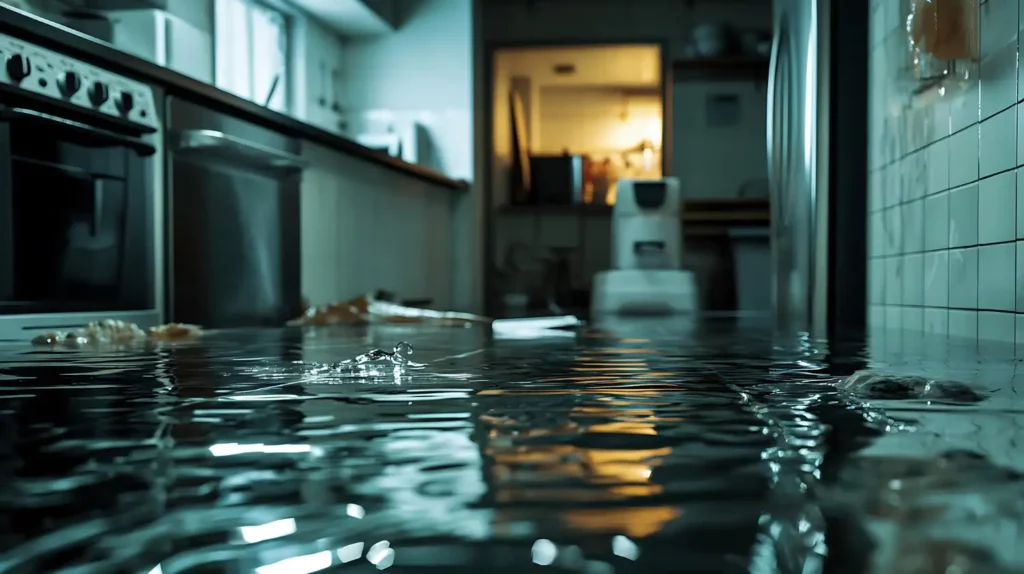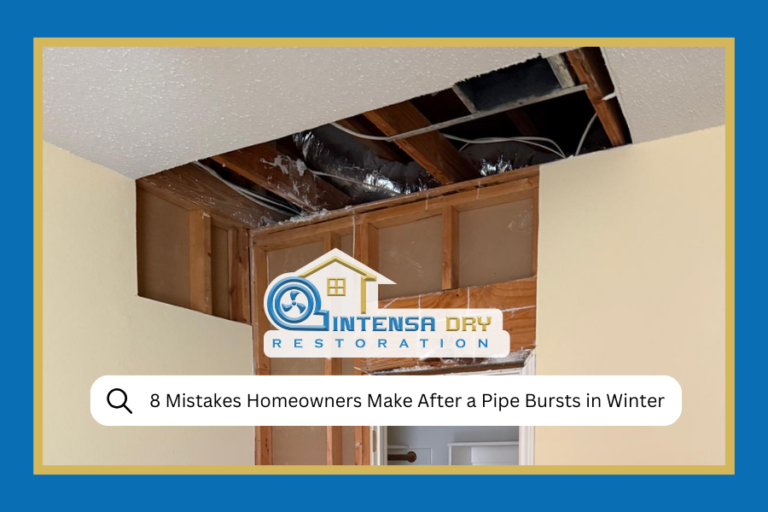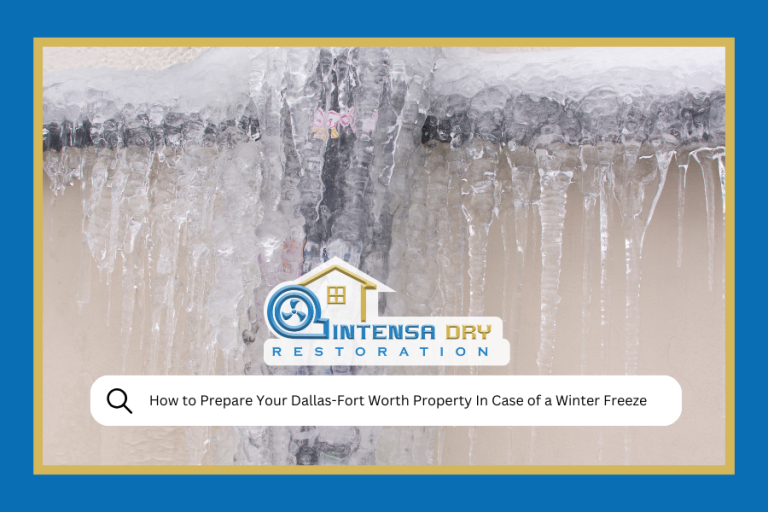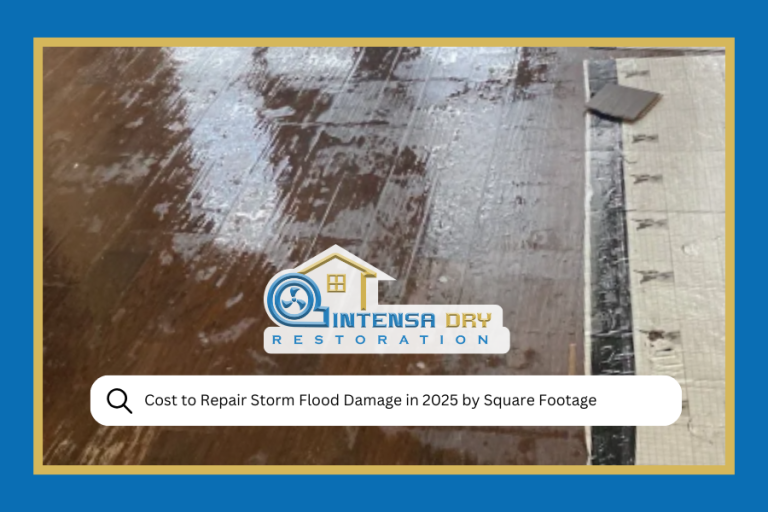Water damage is a common concern for many homeowners, yet it often sneaks up quietly before making its mark. From minor leaks that can warp wood floors to severe flooding that requires a full home overhaul, water damage takes various forms. Understanding what causes these issues isn’t just helpful—it’s crucial to avoiding them altogether. By becoming aware of the potential dangers lurking within your home, you can take proactive steps to guard against costly repairs and maintain your home’s value.
Addressing water damage means more than just dealing with visible signs; it’s about safeguarding your home for the future. Maintaining a regular check on systems vulnerable to water issues can save not only your finances but also ensure your home remains a haven of safety and comfort. Let’s explore the primary causes of water damage and how being a step ahead with preventive methods can save you from headaches down the line.
Common Causes of Water Damage in Homes
Water damage is often the result of a combination of factors. Here are some of the most common culprits:
1. Leaking or Burst Pipes: Pipes are ticking time bombs when it comes to potential water damage. Corrosion, freezing temperatures, and unregulated water pressure can cause them to leak or, worse, burst. Keep an eye out for telltale signs such as unusual damp patches on walls or ceilings and a sudden drop in water pressure. Catching these early can prevent extensive damage.
2. Faulty Appliances: We’re all guilty of over-relying on appliances like dishwashers and washing machines without a second thought. But when these household friends malfunction, the results can be catastrophic. If you notice pooling water or odd noises, it’s a signal that maintenance or replacement might be on the horizon. Regularly inspect hoses and connections to mitigate these risks.
3. Roof Leaks: A well-maintained roof is your home’s first line of defense against water damage. Damaged shingles, faulty flashing, and clogged gutters all contribute to roof leaks, which can sneak into the attic and downwards. A regular roof inspection, especially after severe weather, can help catch these problems before they start.
4. Poor Drainage Systems: Proper drainage around your home’s foundation is vital. Issues like blocked gutters or insufficient grading can lead to unwanted water pooling around the base of your house. This not only threatens the structure but also the safety of your foundation. Make sure downspouts direct water away from your home, and regularly clean gutters to promote effective drainage.
5. Natural Disasters: Sometimes, no amount of preparation can outwit Mother Nature. Heavy rains and storms bring about the risk of flooding, especially in low-lying areas. Stay informed of weather warnings and consider preventive measures like sandbagging.
Water damage can hit when you least expect it, but being aware of these common triggers gives you a head start in preventing them. Regular inspections, addressing issues immediately, and staying informed are essential strategies in protecting your home from these damaging elements. Taking the necessary steps can mean the difference between a small repair job and a full-scale restoration project.
Effective Prevention Methods
Once you recognize the potential causes of water damage, it’s time to focus on prevention. Regular maintenance serves as a strong first line of defense against these issues. Creating and sticking to a schedule for checking plumbing, the roof, and household appliances can allow you to catch problems early. Tasks like inspecting and replacing old hoses linked to your washing machine or ensuring your water heater isn’t overdue for a check won’t take much time but can save a lot of hassle later.
When thinking about safeguarding your home from water damage, consider investing in preventative equipment. Devices like sump pumps are excellent for removing water from areas prone to flooding, particularly basements. Installing backflow valves can help prevent sewer backups during storms. You might also explore water leak detection systems that provide early alerts if something goes wrong, giving you peace of mind when you are away from home.
Proper drainage systems are equally important. Gutters and downspouts direct rainwater away from your home, preventing potential flood risks. Make sure they’re clean and free from debris. For additional security, landscaping options like French drains can enhance drainage around your property, so your foundation stays dry even during heavy rains.
Emergency preparedness is another key aspect of water damage prevention. Having an emergency plan in place can make all the difference when bad weather hits. Know where your shut-off valves are, and keep a list of emergency contact numbers handy, including those of water damage professionals. Having essential supplies ready can help you respond quickly if disaster strikes.
Why Professional Help is Necessary
When water damage does occur, professional help can be invaluable. Experts possess the tools and expertise needed to conduct a thorough assessment of your home, identifying water damage’s impact not always visible to the naked eye. They use specialized equipment to check moisture levels, extract water, and ensure everything is properly dried and sanitized.
Professional water damage mitigation involves a series of steps that go beyond basic cleanup. Experts will carry out water extraction, use industrial-grade dehumidifiers, and take steps to prevent mold growth, which can spread rapidly in damp areas. These measures not only protect the aesthetic and structural integrity of your house but also contribute to a healthier indoor environment.
The peace of mind that comes with having professionals handle these tasks is worth the investment. You can trust that the damage is addressed correctly without suspicions of lingering issues that might surface later. Over time, stopping water damage in its tracks avoids a load of stress and can save you a significant amount of money typically tied up in extensive repairs.
Protect Your Home from Water Damage
Being proactive in understanding and preventing water damage keeps your home safe and secure. Regular maintenance and being ready for emergencies lay the groundwork for protecting your property from common water damage factors. By integrating preventive strategies, handling water damage becomes simpler and less disruptive.
Professional services play a crucial role in managing severe cases effectively. By having experienced hands taking care of your home in these situations, you ensure problems are resolved efficiently and accurately. Staying informed, prepared, and willing to take professional advice keeps your living space resilient against the unexpected challenges water damage presents.
Taking proactive steps in maintaining your home can significantly reduce the risk of water damage. However, when faced with unexpected situations, professional support is invaluable. To learn more about effective water damage mitigation, reach out to Intensa Dry and discover how our expertise helps keep your Plano home safe and sound.






